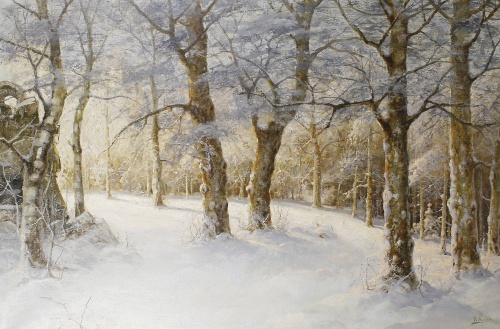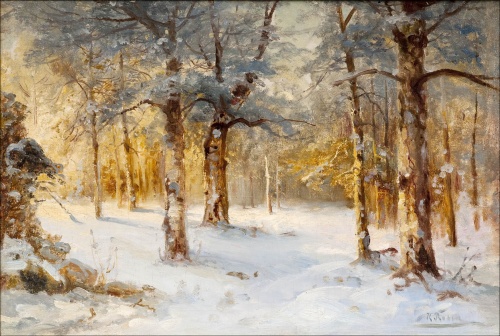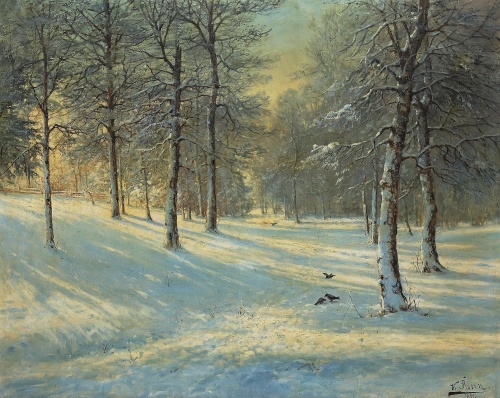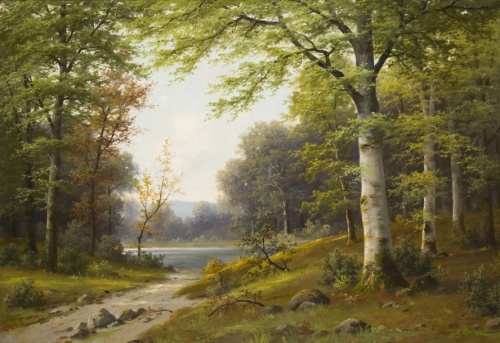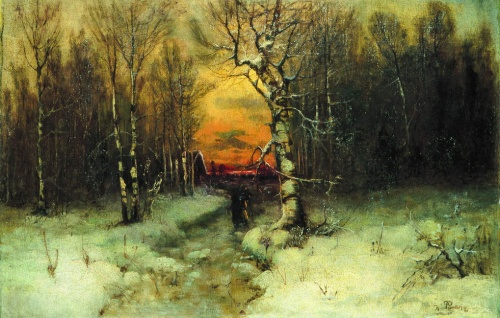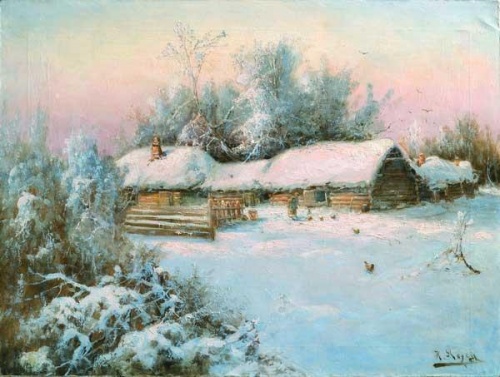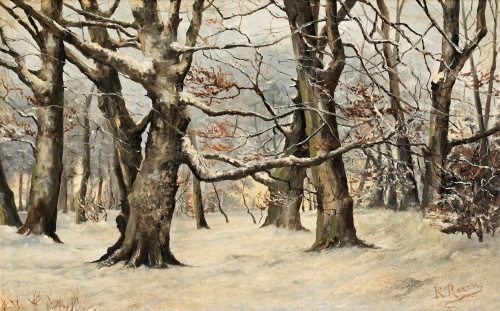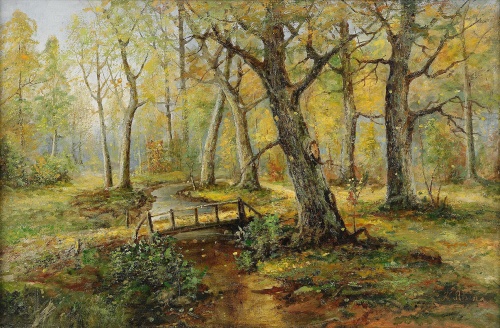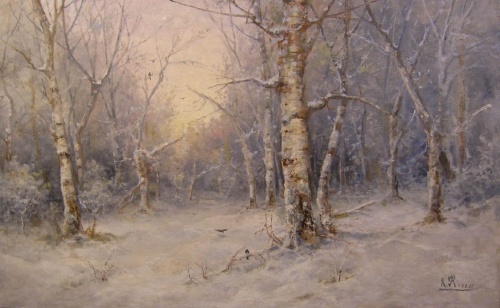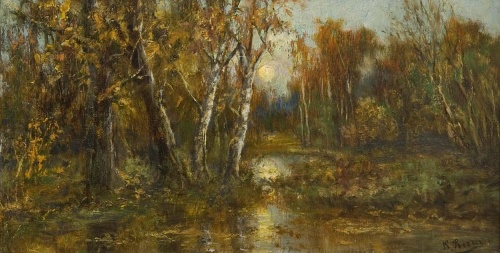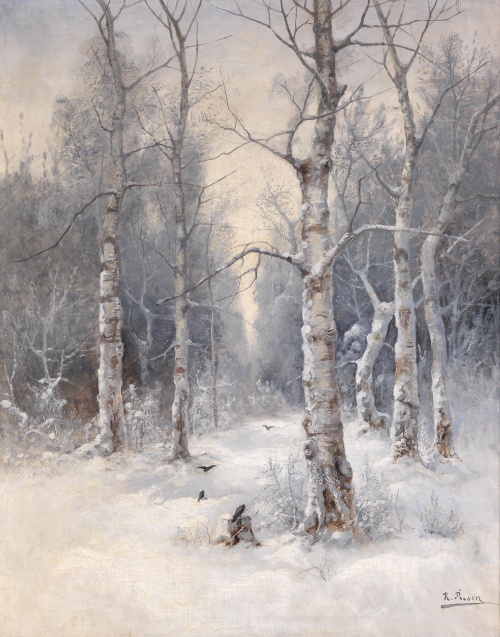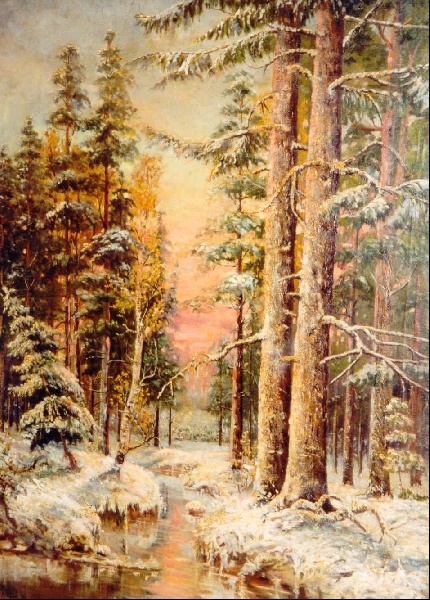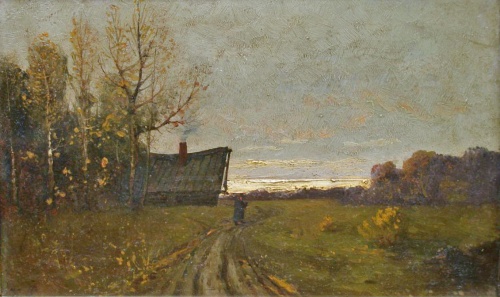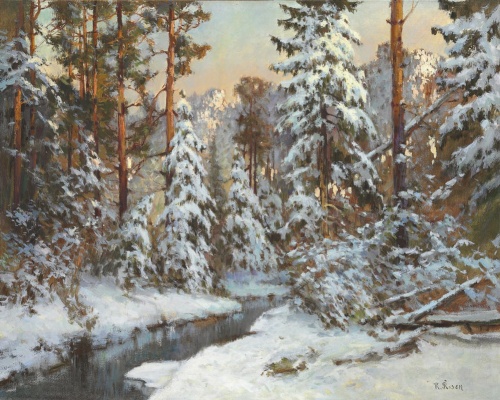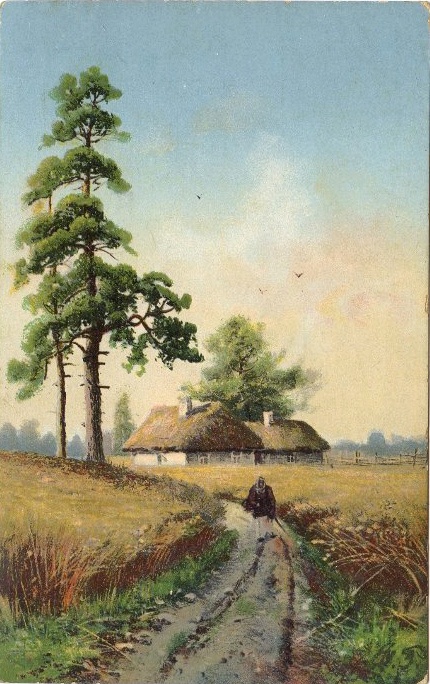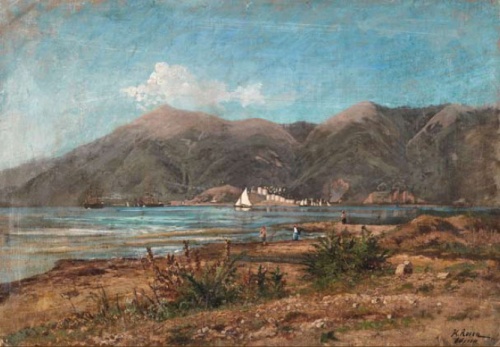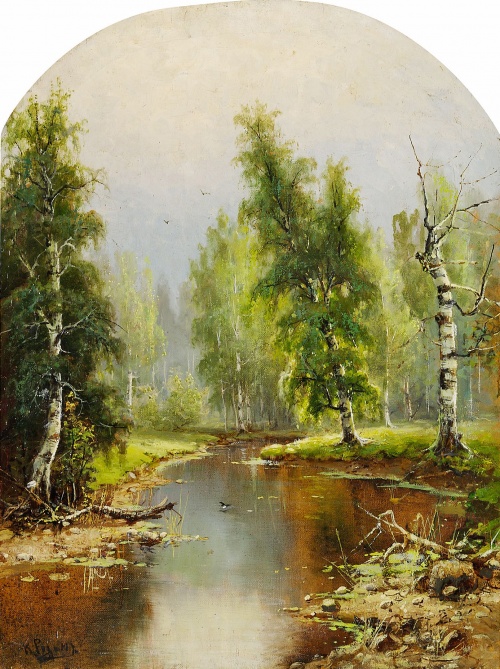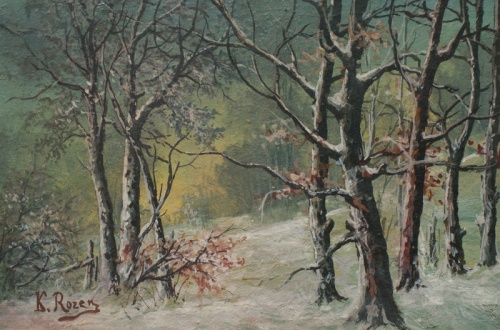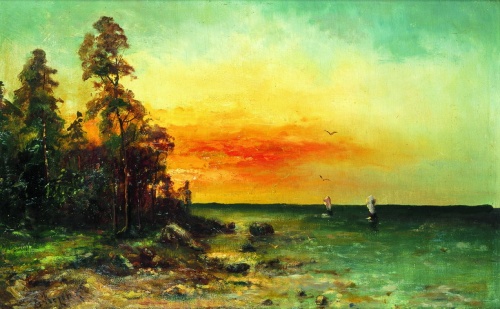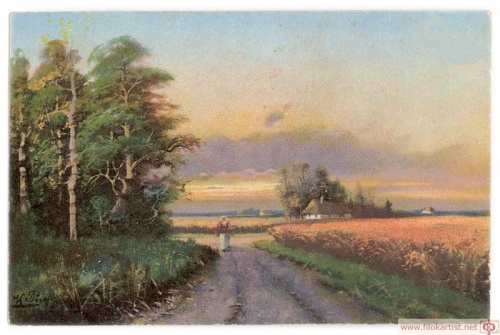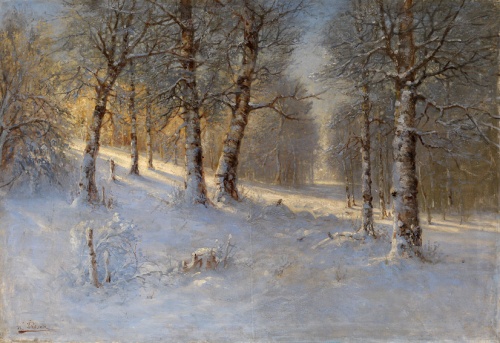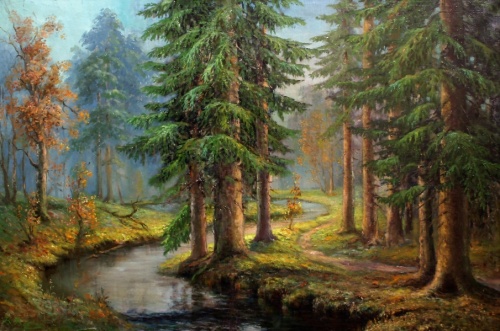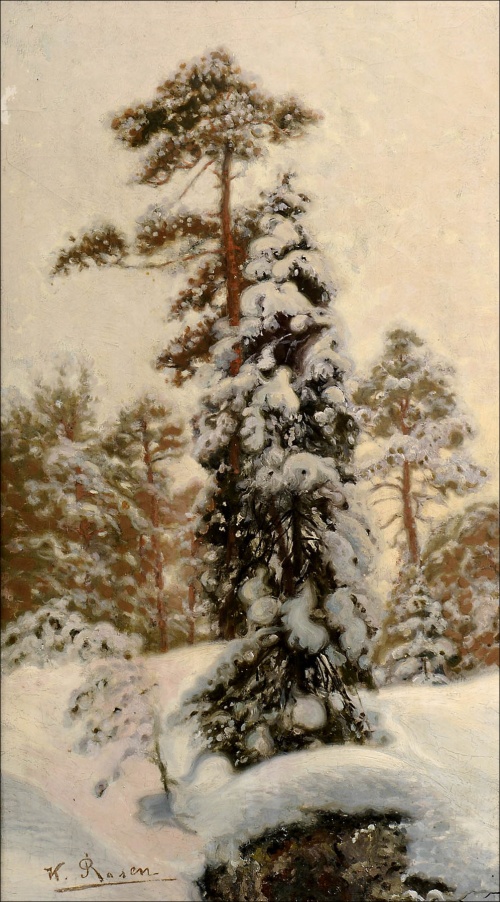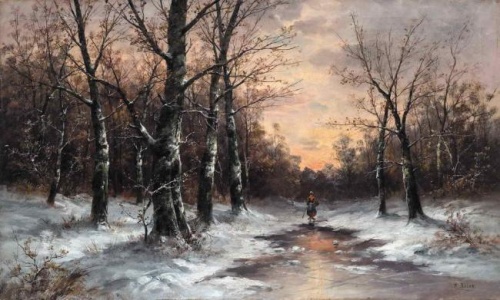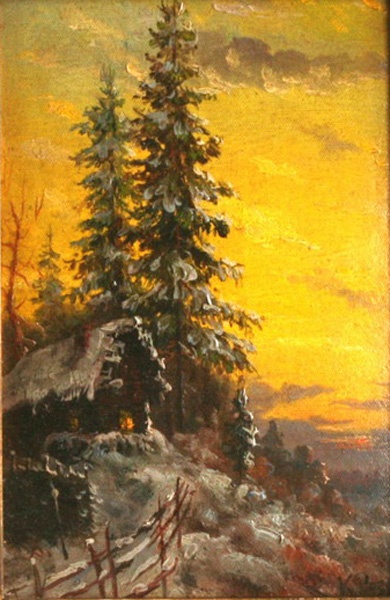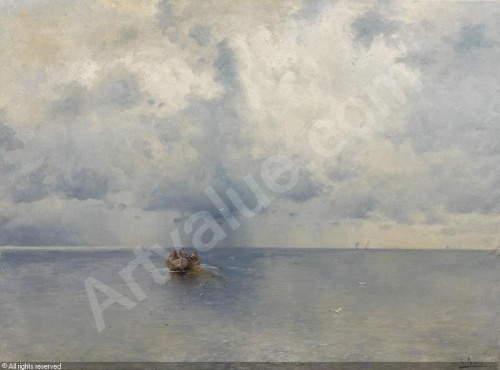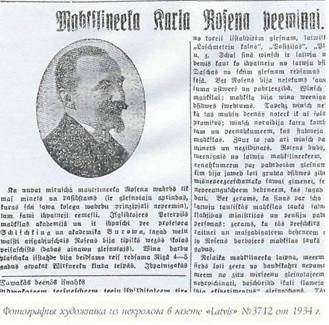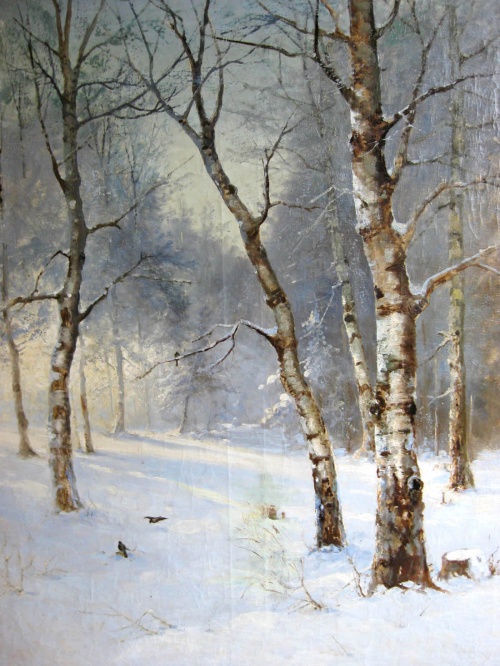Russian and Latvian artist Karl Rosen (1864 - 1934) (30 works)
Russian and Latvian artist Karl I. (Ioganovich?) Rosen was born on January 28, 1864 in Jelgava. After graduating from the local real school, he left for St. Petersburg, where he continued his studies at the Imperial Academy of Arts with F. Burov, I. Shishkin and Y. Klever in the class of landscape painting. Exhibitions with the artist’s participation were held in the halls of the Academy in 1906, 1908, 1912 and 1914.
In 1918, K. Rosen returned to Latvia, where he continued to work actively. This is how “Twilight on Lake Babitee”, “Blocks of the Daugava”, “Jurmala in Summer”, “Night View of Kuldyga”, “View of the Ogre River”, etc. were born. Here, in Latvia, Karl’s long-standing friendship with Julius Clover continued, who at the beginning of the 20th century lived and worked in Riga, where he had his own salon - workshop.
Rosen’s personal exhibition was held in 1927 at the Riga Officers’ Club; the surviving catalog contains 104 works, one of which, “Water Mill,” was written by Karl in memory of his estate in Russia. At the end of the exhibition, the artist presented the Military Museum with the painting “Machine Gun Mountain” (1926, I 18x178 cm, oil on canvas), dedicated to the heroism of the Latvian riflemen during the First World War. Today the painting is kept in the State Historical Museum of Latvia.
After the exhibition, the artist’s works continued to sell successfully and, judging by the surviving price tags, were quite expensive. For example, the painting “Oak in the forest in Daksta” (114x114 cm, oil on canvas) was sold for 1400 lats. (For comparison: K. Rosen paid 30 lats per month for an apartment with four rooms and a kitchen.)
For the last three years of his life, Karl Rosen worked very little, as he was terminally ill. He died on March 18, 1934 in his native Jelgava. The wife, son and daughter of the deceased reported this in the newspaper, inviting everyone to say goodbye to the artist.
From the obituary in the Latvis newspaper: “The name of the deceased artist Rosen was mentioned little and is not familiar to everyone. In the circle of Latvian artists there were those who fundamentally did not notice the works of their colleague. The late Rosen was a typical representative of the old school of landscape painting. His teacher at the St. Petersburg Academy of Arts was the famous I. Shishkin. Aggressive arrogance and “bread enmity” on the part of artists of other movements made Rosen’s peace-loving and honest heart suffer. He lived only for the sake of art, rejecting any dubious deals that were far from his work. The artist supported his family solely on income from the sale of his paintings. We hope that the news about this worthy Latvian artist, who worked in the field of art for 49 years, will reach the main persons of the Pension Council in the hope of assigning an appropriate pension to his widow and two young children.”
The posthumous exhibition of K. Rosen, organized by the artist's widow, was held in Jelgava in 1937. The exhibition consisted of 62 works. The press noted this event with a touching review, especially highlighting such paintings as “Deep Snow”, “Pine at Sunset”, “Winter Landscape with Shelves”, “By the Lake in the Early Morning”, “View of the Cemetery in Balozhi”.
In the summer of 2003, the Riga gallery “Aiitonija” held the exhibition “Romantic era in the painting of Baltic artists of the 19th-20th centuries,” where several landscapes by Karl Rosen were presented, noted by the attention of grateful spectators.
When assessing the paintings of Carl Rosen today, it is necessary to take into account that his work, like any artistic phenomenon, is determined by the characteristics of his time. The requirements and tastes of subsequent eras cannot be transferred to the artist’s works. Most of the paintings, during the author’s lifetime, found their connoisseurs in Denmark, Sweden, England, Holland, France, at home - in Latvia, and also in Russia. His lyrical landscapes, which embodied a piercing sense of homeland and the soul-touching spirituality of nature, decorated the offices of foreign residences and the walls of respectable houses.
From the article by S. Pribytkova, A. Verdins “Unknown K. Rosen” - Antiques magazine N° 6 (18), 2004, pp. 19 – 23.
